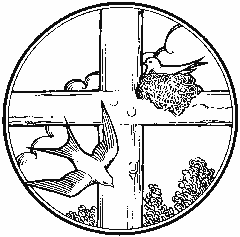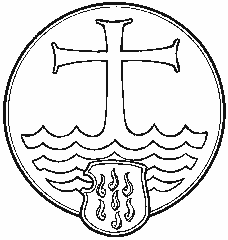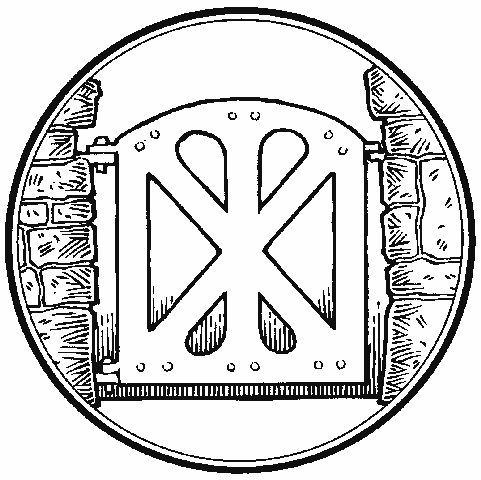Grace, mercy, and peace to you from God, our Father, and from our Lord and Savior, Jesus Christ, amen. The text for the sermon this morning comes from the Epistle, which was read earlier.
All too often, we hear the phrase, “I promise.” Sometimes those promises are kept, sometimes they are not. Sometimes those promises have the potential of being kept, while sometimes they do not. We promise young children that nothing bad will happen to them; yet the first time they fall and skin their knees, you have broken your promise. We are promised the world; yet in order for that promise to come to fruition, we must work at achieving those things of the world in order for them to be ours.
When one reads of the promises of God, there is never any doubt that what God promises will indeed take place. God, as far back as Genesis 3, gave to Adam and Eve, and all people, the first Gospel promise: “I will put enmity between you and the woman, and between your offspring and her offspring; he shall bruise your head, and you shall bruise his heel.” That first Gospel promise was the promise of the Messiah, our Lord and Savior, Jesus Christ.
Paul, in our text today, refers to the promise made to Abraham and his offspring “that he would be heir of the world.” The emphasis of the promise lies in the fact that this “did not come through the law but through the righteousness of faith.” God did not and, in fact, could not make the promise, this great promise to Abraham or to his seed, by means of the Law. He did not attach this promise to Law; Law would have been the wrong vehicle. Law could never had made either Abraham or his seed righteous, and they had to be so in order to have this promise and to have it fulfilled in them, for if they had been left in an unrighteous state, they would have been no better than all the rest of mankind. Abraham and his seed had to be made righteous. They were and are made so by means of faith’s righteousness.
Since Law was an impossible means and faith the only means and source, the norm had to be grace, and God intended it to be so. Grace was God’s part of it, a part that was glorious for Him and blessed for us beyond anything that language is able to express. No wonder God intended it so; in fact, as we read elsewhere in the Scriptures, God intends that no man shall ever doubt that pure grace is the norm of His entire saving work.
Likewise it appeared that Abraham had no reason to continue hoping that he would be the “father of many nations.” Humanly speaking, every basis for hope had to be discounted. And yet, contrary to all human expectations, Abraham continued to “hope against hope.” His hope persisted because its basis was God and His promise. God had said to him, “So shall your offspring be.” Abraham believed that. He believed it contrary to every human indication, even as he had believed it when God first gave him that promise. And he was not disappointed or put to shame for that hope. In due time he realized its fulfillment. Hope that looks to God and his word is a fruit of faith—faith which considers God’s promises as being as good as done.
What kept Abraham going was the faith he had in God to do what He had promised. Each and every one of us has that promise of God because of what He says in the book of Isaiah: “So shall my word be that goes out from my mouth; it shall not return to me empty, but it shall accomplish that which I purpose, and shall succeed in the thing for which I sent it.” What is the purpose in which the Word of God was sent? The purpose is the forgiveness of our sins. Jesus Christ, the Word of God made flesh, is what God sent to us. He sent the Word to make ready the hearts of God’s people, to allow the Holy Spirit to create saving faith in us, so that we may believe in God, the giver of all good things, especially the one who gives to us the forgiveness of sins, life, and salvation.
God calls us as He called Abraham – into the unknown. There, faith is tested. There faith takes leave of the comfortable and steps out into obedience of God’s Word. There faith grows strong, trusting in the promises of God.
Just as we see with Abraham, we see the same in Paul. Both men had faith in God and His promises. Abraham had faith that God would make him the father of many nations. Paul, while he went by the name of Saul, had no faith. On the contrary, he did all that was in his power to stamp out Christianity. When he met Christ on the Damascus Road, his eyes were opened and faith was given to him. From that moment on, he became one of the most prominent Christians of the day.
You and I are no different than Abraham or Paul. God has made a promise to each and every one of us; the promise of His Son sent for the forgiveness of our sins. However, there is one thing between us and that promise: our sin. Should we be left to our own devices, we would have a broken promise from God. Thanks be to God, we are not left to our own devices. God’s promise is not one that can be broken. His promise surpasses our sin and remains true: Jesus Christ has come to forgive you all of your sins and to make you a child of God.
While the promise of God is and always will remain true, we tend to doubt His promise. Weak faith has little appetite for endurance. It rejoices easily in a promise, but loses heart when the fulfillment of that promise is delayed. Common sense takes over. Maybe we misunderstood. Or maybe it was meant only in a spiritual sense. The gap between our experience and our faith-experience is too painful to endure, so we lower our expectations. When faith trusts God’s promise in the face of discouragement, we are driven to reach more deeply into the strength and grace of God.
Several times, when discouragement weighed heavily on Abraham, God called him back to the original promise and re-established His covenant with him. Times of discouragement are occasions for bold remembering, remembering the promise which God has made to you through His Son, Jesus Christ.
When Martin Luther was afflicted with doubt and discouragement, when God seemed to have allowed every trace of faith to be stripped away, he would return to God’s foundational promise, and affirm, “But I am baptized!” This was not a foolish hoping in a magical rite. It was a unyielding return to the promise of baptism, that he had be grafted into Christ. It was a trusting in God’s promise when all evidence and all experience seemed to argue to the contrary.
God allows discouragement to teach us the true nature of faith and that we may see faith grow. Faith is not a mere agreement of the mind to certain truths. Martin Luther grasped the true nature of faith when he wrote, “Faith is a sure trust and confidence of the heart, and a firm consent whereby Christ is apprehended; so that Christ is the object of faith, yea rather he is not the object, but, as it were, in the faith itself Christ is present!”
Faith is a personal union between the believer and the risen Christ, which is brought into our hearts by the Holy Spirit. To grow strong in faith means to grow strong in your relationship with Christ. To grow strong in faith means to have His lordship gain strength in your life. To grow strong in faith does not mean that some part of you called “faith” gets stronger, but rather that Christ in you gets stronger. For faith is nothing other than that, Christ in you. Strong faith is not something reserved for a handful of supersaints. You can have strong faith because you have a strong Christ and a strong Father who keeps His promise to you. In Jesus’ name, amen.
Now the peace of God which passes all understanding, keep your hearts and minds through faith in Christ Jesus until life everlasting, amen.


